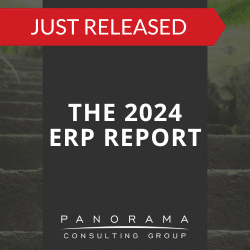As I reflect on all of the ERP implementations I’ve participated in throughout my career, I can’t help but notice a correlation between the perceived success of the project and the engagement level of my client’s project manager. With that being said, let me define success. I think it goes without being said that delivering on time, and under budget would be widely accepted ERP critical success factors. But I also define success in a more human way. In other words what does “being happy” look like for the client? What about the project manager?
I’ll tell you one thing I’ve learned — happiness for the organization, the ERP project and the people tasked with working on it comes down to one relatively simple element: time. Many client project managers are balancing the ERP implementation requirements with their normal “day job” functions. Thus, they’re put in an impossible position of structurally never having enough time to properly engage. In an ERP project, which can be an all-consuming undertaking, time is a necessity. I think I need to say that again: time is a necessity. It takes time to understand the myriad complexities of the business, the ERP system and the union of the two. It takes time to improve the business processes prior to implementation. It takes time to communicate all the changes, coordinate the training and make sure everyone is content with the software across the organization.
So when a project manager doesn’t have time to learn, digest and apply this bevy of new concepts (concepts that they are ultimately held responsible for), frustration comes quickly. At Panorama we typically say that that for a bigger engagement, such as an implementation, a project manager needs to be able to allocate 75- to 100-percent of his or her work week to the project over several months. While some organizations like to think they can operate “more efficiently” or “don’t need this degree of hand-holding,” if the level of commitment demanded by an ERP project is not met, the project can be significantly slowed or even halted.
What gets lost in all this rush and stress are the details and, as the old saying goes, the devil is in the details. If you are planning on undertaking an ERP implementation, make sure that you put your project manager and other key team members are in positions to succeed. Their successes are your organization’s successes. Help me help you by nurturing the project with the time and resources it needs from the beginning.
Written by Jason Henritze-Hoye, Senior ERP Consultant at Panorama Consulting Solutions.













